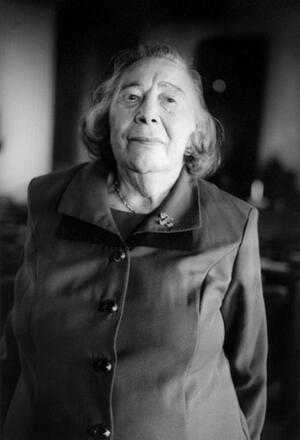Nina Lederkremer
Nina Lederkremer's personal and professional lives were characterized by courage and resilience. Born in 1920 into a comfortable family in Poland, Nina's life was torn apart when the Nazis invaded. She escaped by fleeing to Russia and then to Asia, ending up in a displaced persons camp after the war. In 1951, she arrived in New York, where she became a Hebrew teacher. She moved to Baltimore after marrying Jack Lederkremer, a salesman, also from Poland. Although she had no children of her own, Nina nurtured generations of students at Chizuk Amuno Congregation by pouring her passion for Judaism and teaching into their lives. Nina was also active in Hadassah and provided translation services to newly arrived Russian Jews. Nina Lederkremer passed away on December 30, 2002.
Lederkremer begins by detailing her escape from Nazi Germany as a child and the circumstances of her coming to the United States in 1951. She discusses meeting relatives and settling in New York City. Nina describes the living conditions in the city and her job as a factory worker and recounts her job at a Hebrew-speaking camp. Nina tells stories about teaching and her students. She remembers meeting her husband in New York City and their subsequent move to Baltimore, where she taught Hebrew at Chizuk Amuno. Nina discusses her relationship with Orthodoxy and the differences in Jewish practice between Europe and the United States. She talks about spending time in Poland and helping to finish a Torah brought from Poland. Nina then gives her thoughts on Israel, teaching, womanhood, friendship, and music. In the second meeting, Lederkremer goes into further detail on her childhood in Poland. She recounts moving at the beginning of the war, becoming a bookkeeper during the Russian occupation, and escaping to Russia during the German invasion. Lederkremer discusses losing her parents and meeting her brother again after the war. Finally, she gives her thoughts on survival and Judaism after going to jail and preparing young Jews for the illegal Aliyah in Austria. Finally, Nina shares a message to young Jews and explains why she did not go to Israel after the war.



